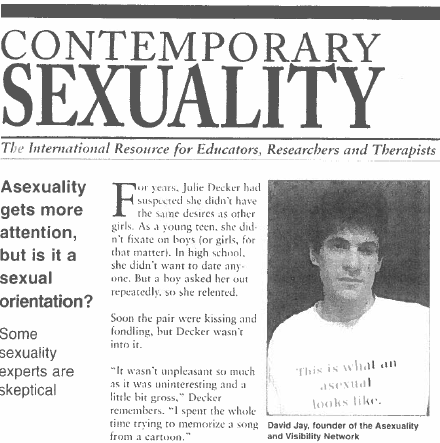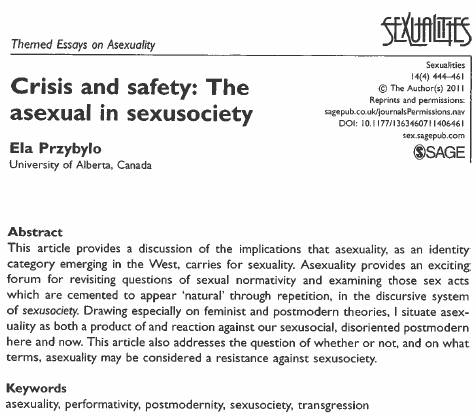wsdb 290
library research workshop
GUIDELINES FOR YOUR PROPOSAL
library-related instructions include:
- submit a well-conceived paragraph, single-spaced, with a title, subtitle, and tentative/preliminary bibliography....
- ...of peer-reviewed / scholarly articles or books that seem RELEVANT to your interpretive problem"
- locate "...disagreements among scholars, gaps in knowledge"
- follow customary scholarly CITATION format (ie MLA or APA) ...and carefully acknowledge your sources."
writing assistance at the library and the university


[writing guides from the library]
reminder of 'questions to think on':
-
What interpretive problem or question do you intend to address? Explain the problem, showing how it arises from your chosen text/s…
-
What makes your problem problematic? What disagreements among scholars, gaps in knowledge, or complexities or inconsistencies in the text/s characterize the problem?
-
What’s at stake in addressing this problem? Why is it significant? To whom does it matter? How will solving it advance the conversation? How does your small problem connect to some larger problem?
- In addition to your chosen text/s do you envision using any other primary sources such as other kinds of sources – contemporary historical documents, empirical evidence, visual media, and so forth?
What do YOU want to cover today?
tell me here:
OUR Agenda....
but first:
need assistance with any of these agenda items?
ask questions - GET HELP:




at the AskUs desk
via chat
via email
by phone

Need assistance beyond a quick chat,
and have a bit of time to plan?
your subject librarian: susie.breier@concordia.ca (she/her)
Text
ZOOM office hours: most Tuesdays
3:30-5:30 pm
OR by appointment
AskUs Desk
Webster LB building: most Tuesdays 1-3

Text
Google: concordia library women's studies
Text

A message from the Principal of the Simone de Beauvoir Institute on October 2:
"Most recently we have secured funding to ensure that our Feminist Reading Room and Learning Centre provides students with staffing support from 9 am- 9 pm from Monday-Thursday, and from 9 am-5 pm on Fridays. Please note that Isabelle Lamoureux has already begun to work in the Reading Room 9-5; we will inform you as soon as a graduate student has been hired to work in the evenings.
Simode de Beauvoir Institute
Feminist Reading Room & Learning Centre
ER building, 2155 Guy Street, 6th floor
contact: isabelle.lamoureux@concordia.ca
- FIND material that is RELEVANT to your topic / problem
- Trace scholarly DEBATES using "Cited by" in Google Scholar
- Make sure material is SCHOLARLY / peer-reviewed / academic
- Enter KEYWORDS in Library Databases (search strategies)
- CITATIONS style guides (APA / MLA)
- Use ZOTERO
- ACCESS resources at Concordia and beyond
OUR Agenda

search for it in any library worldwide:

... and simply request it!
but you CAN'T borrow ebooks from other libraries!!


to find scholarly articles or books
related to your topic / problem
where wouldyou search?
tELL your CLASSMATES

where you search affects
what you find and how you find it
my tentative topic / problem
Interested in current debates about assisted dying legislation in Canada, claims that inclusion of disability as a reason for requesting and accessing physician assisted death are akin to a eugenics framing…. In terms of historical women's studies perspectives, might this not have echoes of earlier 20th century debates about reproductive rights, and how that too has sometimes been associated with eugenics, or eugenic feminism?
My questions / problems: Can the current debates around assisted dying legislation and disability in Canada be informed by 20th century feminist debates around social hygene and eugenics? How might Simone de Beauvoir interpret MAID legislation in Canada?
This will take SEVERAL SEARCHES to explore, using...
finding references for my tentative biliography...
reminders:
- Use the readings, authors and literature you already know...
- and explore those to the fullest!
- Use Google (or your favourite tool) to get smarter about your topic
- and THEN:


Search for specific library books, ebooks, articles and films
but go beyond sofia
to search for topics...
Women's STUDIES databases
SEARCH EXAMPLES IN DIFFERENT DATABASES

more SEARCH EXAMPLES...

now how can you access / download articles you found?





or continue on to
"cited by" in google scholar....
GOOGLE SCHOLAR "CITEd by" -
A different search EXAMPLE:
I like the 2011 article: "Death with “dignity”: the wedge that divides the disability rights movement from the right to die movement" as it seems very relevant to part of my topic.
I want to find more recent articles that engage with this work, but that also engage with feminism and look at Canada.
I can enter the article title in Google Scholar, click on the "Cited by" link and then add "search within" keywords such as : feminism canada to get a whole new set of interesting results
for more tips on accessing documents your found in google scholar see:
Setting up Google Scholar
to find Library resources
OR see the slides on:
google scholar findit@concordia TIP:
or continue on to identiying
scholarly / peer-reviewed....
scholarly / Peer-reviewed / academic
In some Library Databases you can use a checkbox:


VIDEO: peer-review in 3 minutes

or continue on to test yourself....
TEST YOURSELF:
is it academic / scholarly /
peer-reviewed?
which one(s) is/are scholarly?
This is a resource aimed at practitioners and researchers, but it is not written by an academic describing a research study or a theoretical framework. Though it casually refers to other studies, it does not seriously engage with other academic research and has NO BIBLIOGRAPHY!
This IS an academic/scholarly/
peer-reviewed article. Important clues: academic language, author draws on scholarly theories and outlines their own. Long BIBLIOGRAPHY of references. You can look up the journal Sexualities and find out that is peer-reviewed.
or continue on to search
strategies & keywords....
How to properly enter your KEYWORDS in Library Databases
search strategies
handout to download:
| TIP | WHAT IT DOES | EXAMPLE |
|---|---|---|
|
AND |
Combines concepts. Limits how many results your search produces |
police AND violence |
|
OR |
Allows for synonyms or alternative terms. Increases the number or results your search produces. |
violence OR brutality |
|
* |
Near the end of a word, retrieves all words that start with the letters entered. Increases the number of results a search produces | Canad* (retrieves Canada, Canadian) |
| “ ” | For two words or more, search for an exact phrase only, rather than each keyword separately. Limits how many results your search produces | “systemic racism” (retrieves systemic racism, but not systemic oppression related to racism) |
search tips & tricks
standard library article databases
example of a search in "standard"
EBSCO Article Databases
another example
in socindex
(YouTube, 7 mins)
Developing your search strategy: VIDEO
search strategy tip: keywords are not the only thing to think about!
Picking your topic takes strategy too
YouTube video, 3 mins
or continue on to bibliographies & zotero....
formatting referencES:
citation guides &
why is citing important?
This is a challenge for all of us: Reflect on the way you approach referencing the work of others in your own writing, presenting and thinking. Whose work do you build on to make arguments ... Who are you citing, and why do you cite them (and not others)?
Eve Tuck, K. Wayne Yang, Rubén Gaztambide-Fernández,"Citation Practices" Critical Ethnic Studies, April 2015
I believe that bibliographies and endnotes and references and sources are alternative stories that can, in the most generous sense, centralize the practice of sharing ideas about liberation and resistance and writing against racial and sexual violence.
Katherine McKittrick,"Footnotes (Books and Papers Scattered about the Floor)", Dear Science and Other Stories,2021
[on being an activist:] Try to think in terms of effectiveness; be bulletproof. I mean, anything that you say, you should be able to back it up with footnotes.
Buffy Sainte Marie interview with Rosanna Deerchild, Unreserved podcast, 2022
what's the simplest way to properly cite?
it depends.
Start by picking a citation style
and consulting a:




use a citation style guides:
APA STYLE: typical examples
in-text citations
Hakkinen and Akrami (2014) found that “individuals are receptive to climate change communications, regardless of ideological position” (p. 65).
Research shows that people from any ideological background are open to hearing about climate change (Hakkinen & Akrami, 2014).
APA STLe: typical exampleS
Bibliography

see this sample paper with a reference list on p. 17
What about automatic citation tools?
take your pick:
a) citation generators*
b) citation management tools*
a) citation generators
Many library databases (for example: Sofia Discovery tool, EBSCO and ProQuest databases) as well as Google Scholar will provide you with formatted citations in the style of your choice that you can copy and paste into your bibliography, reference list or works cited list.
Make sure to double check your generated citations - they are not always correct! Use those citation style guides to make sure all the required elements of the citation are present and correctly formatted.

*
b) citation management tools
Sometimes also called bibliographic management tools, these allow you to:
-
Download citations you find in library catalogues, databases, Google Scholar, and on the web.
-
Store and organize citations, and prepare a bibliography or reference list automatically.
-
Automatically format and insert in-text citations and a bibliography into papers you are writing with Microsoft Word, for example.
There are several citation management tools available.
Concordia Library provides support for ZOTERO...........
Make sure to double check your generated citations - they are not always correct! Use those citation style guides to make sure all the required elements of the citation are present and correctly formatted.

*
or continue on to
accessing resources at concordia & beyond

Search for library books, ebooks, articles and films


what if the library doesn't have it ONLINE?
request a book and pick it up later....


or use the call number and locate button to find it





what if the library DOESN'T have it at all?
what if you are looking
for a journal?
for example, the latest issue of Ecofeminism & Climate Change journal?


or continue on to bonus
material on primary sources..
primary source
=
a source that provides first-hand testimony or direct evidence concerning a topic
=
the object(s) of your study
=
can be almost anything, depending on the CONTEXT!

what is a primary source?

historical
can be PRIMARY sources?
typical primary sources
- newspaper articles
- diaries
- blogs, tweets & other social media posts
- films / videos
- court transcripts
- laws, bills, government publications
- NGO reports

















